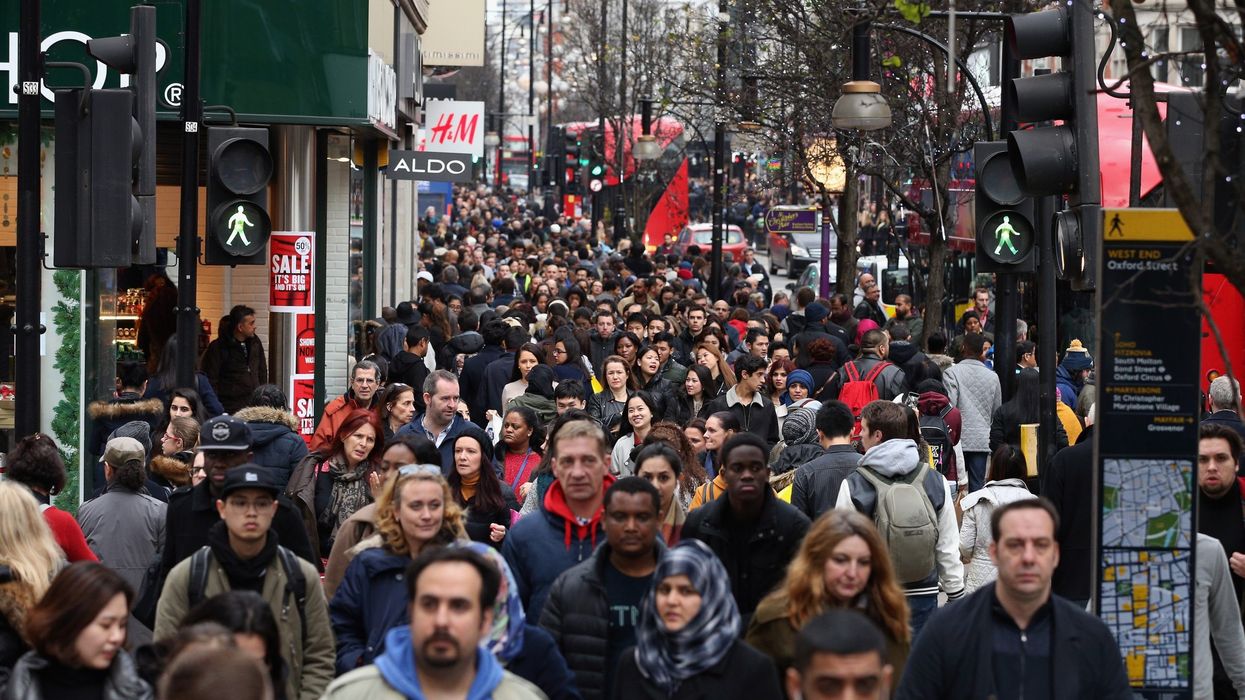The government must embrace immigrants who take risks setting up businesses, create jobs, and contribute billions of pounds to Britain’s economy.
That is the call from MPs and business leaders who have spoken to Eastern Eye.
They have told this newspaper that the home secretary, Suella Braverman, should be ashamed of herself for describing migrants as “invaders”.
Their comments come as the latest census figures show that one in six people in England and Wales was not born here.
In the top 30 places, all except four are London boroughs.
Brent is number one with 55 per cent born outside of the UK.
“Surely what matters is that we have good people who are able to enrich our society regardless of where they are born,” said Dawn Butler, Labour MP for Brent Central.
“If you go to the hospital, you don't say where were you born?
“You ask, are you able to help me, and I think that's the focus.
“We shouldn't be focusing on where somebody was born because what are you measuring by that?
“We need people to make this country even better than it is, we need people to pay into the pensions.
“How many millions of pounds worth of fruits went unpicked?
“We've got so many vacancies we need to start looking at it in terms of the value that people bring.”
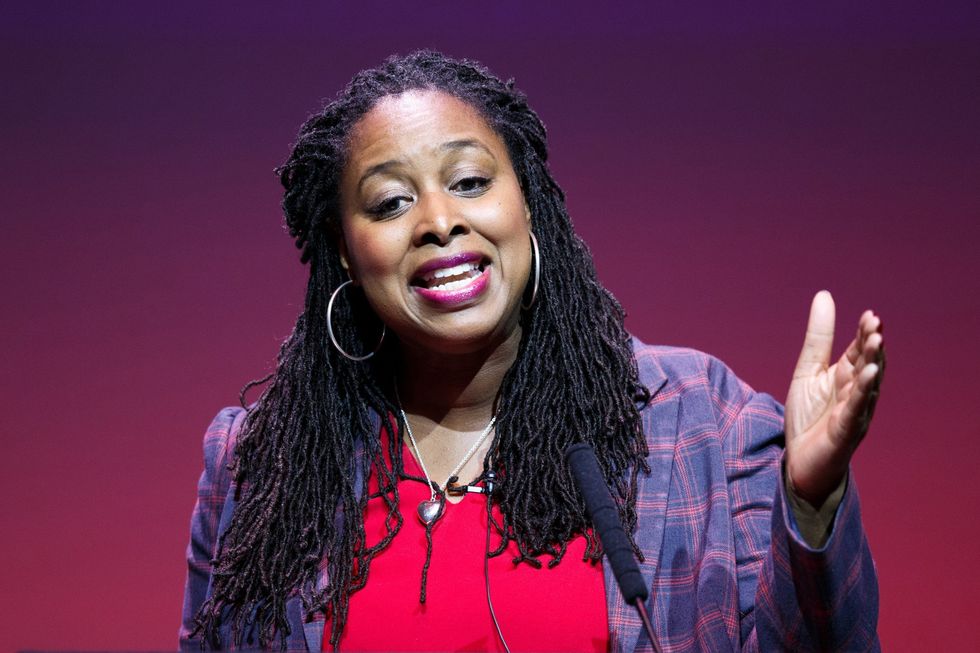
Once again, India leads the countries where most were born.
Leicester is the top city where 41 per cent were born outside the UK, up from 34 per cent in 2011.
“Leicester is a city proudly diverse and renowned across the world for welcoming people to it, and it has been for generations now,” Jon Ashworth, Leicester South and shadow work and pensions secretary, told Eastern Eye.
“Obviously, your readers will be very familiar with those from a Gujarati heritage or Punjabi heritage, Bangladeshi heritage and Pakistani heritage coming to a city like Leicester.
“But in recent years, we've seen communities from parts of Africa, like Somalia, Somaliland, Middle Eastern countries, a growing Kurdish community, and of course, more recently, Leicester welcomed refugees from Afghanistan and Ukraine.
“There is no question that the different communities that have settled in Leicester over generations have contributed to Leicester being the dynamic and the exciting city that it is today.”
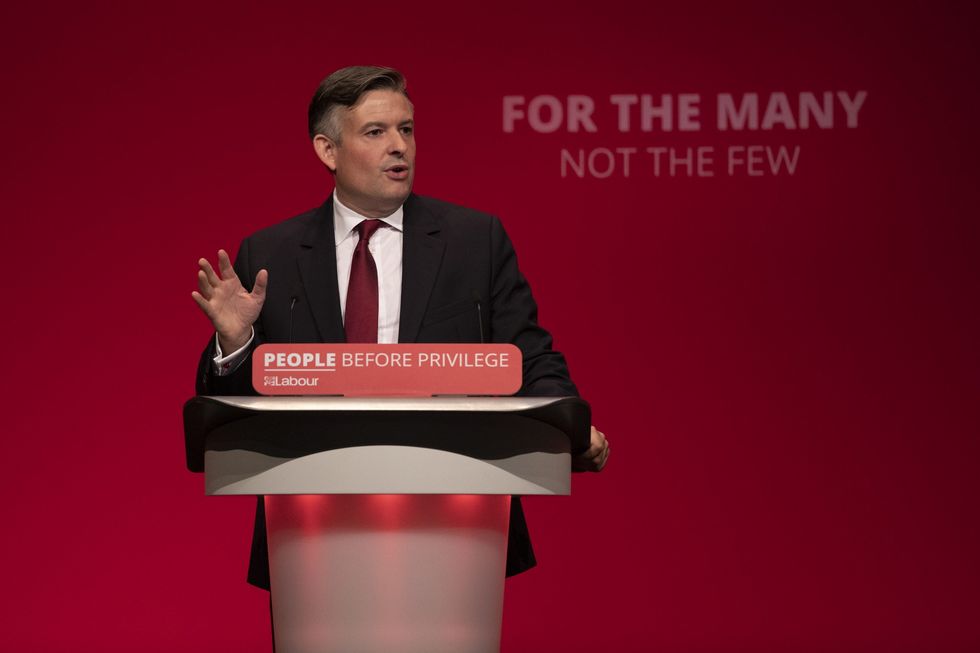
The city celebrates 50 years of Asian settlers expelled by the Ugandan dictator, President Idi Amin.
One part of the city, called the Golden Mile, owes its vibrant economy thanks to immigrants who set up restaurants, clothes shops, and jewellers.
But they created jobs for both Asian and non-Asian families.
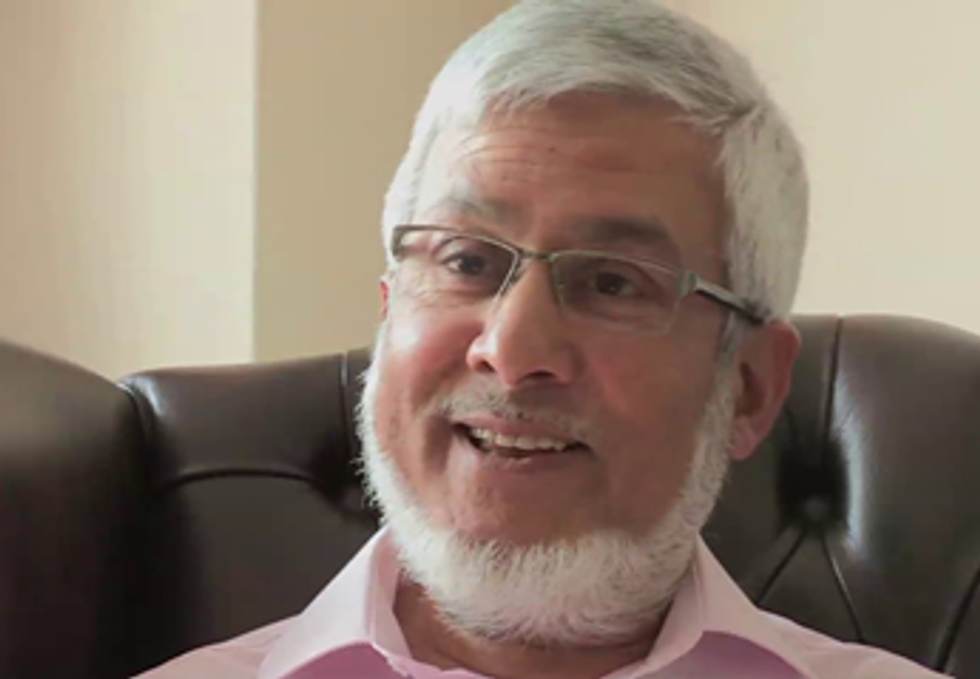
“When we came here in the 1970s and 1980s, we more or less controlled the garment and textile trade, and we created thousands of jobs for people who were older and wanted to work flexibly,” said the founder and former president of the Leicestershire Asian Business Association, Jaffer Kapasi.
“But we also made sure that we also had some of the highly skilled British people working for us.
“I still remember some companies having chief executives who were white.
“We did that because we recognised that to expand business, we had to integrate the expertise of white people.”
Economic contribution
Eastern Eye’s Asian Rich List makes clear the contribution of south Asian business to the UK.
The value of the top 101 businesses tops £99 billion, and they employ tens of thousands of people.
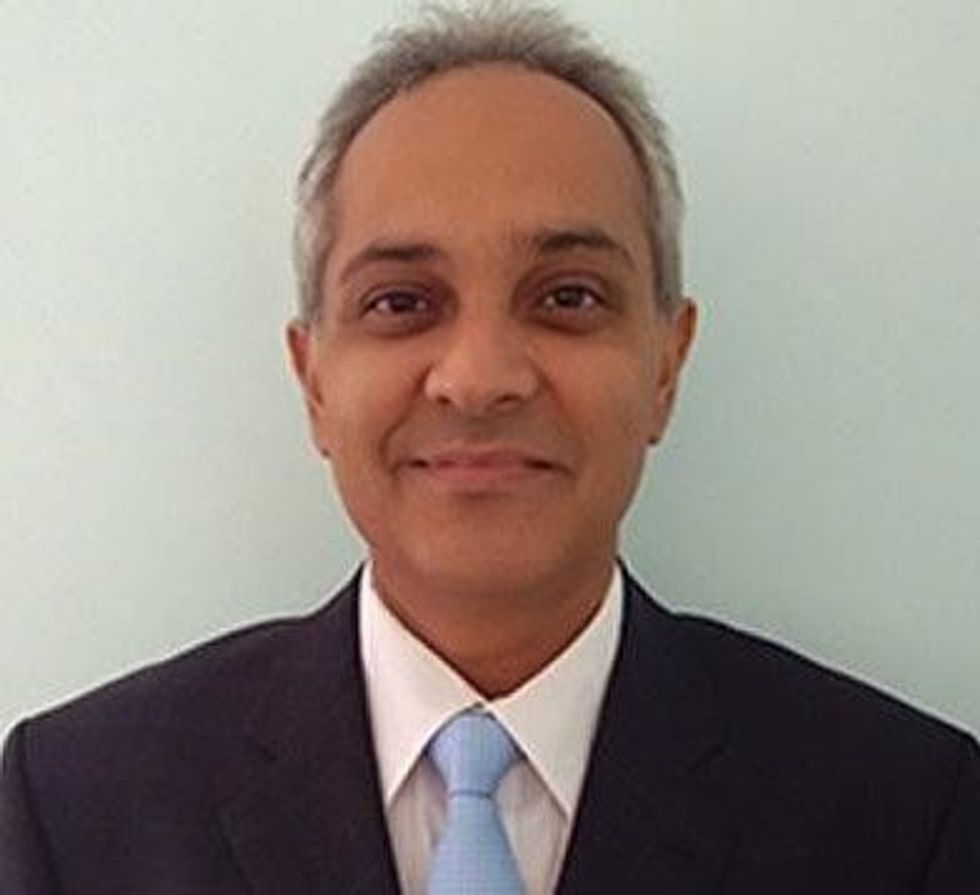
“There've been a few recent reports, looking at the contribution of ethnic minority owned businesses,” said associate professor, Dr Ajit Nayak, from the University of Southampton’s Business School.
“The estimate is somewhere between £25 billion to £70-odd billion gross value added.
“That’s the amount after business has taken out costs, so what they contribute in terms of taxes and so on.
“And that's the equivalent two Manchester's worth of economic activity being generated by ethnic minority businesses.
“The growth of the country depends on business activity, and immigrants bring a level of entrepreneurial spirit and drive and determination that the UK has benefited tremendously.”
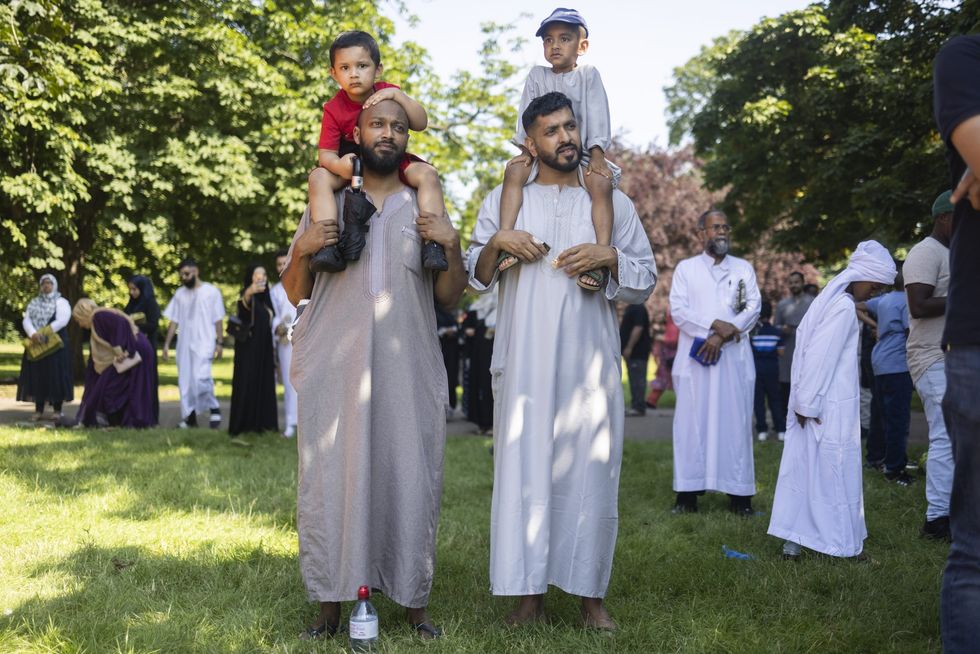
What is clear, said Kapasi, is that immigrants work harder and longer hours, taking more risks.
That means their children often decide not to follow in their parents’ footsteps, which is why immigration refreshes work ethics in this country.
“Lord Gulam Noon was a close friend, and he used to tell me that his business survived on asylum seekers and new immigrants,” he said.
“He said they work so hard, they don't take countless tea breaks, they put their mind and soul to being employed.
“They send money back to their families in India, Pakistan or Bangladesh.
“We really need the new blood to come in.
“Take the example of Germany, a really controversial decision by their leader, but they know that new blood actually helps the economy.”
Dog whistle
MPs described Braverman’s portrayal of migrants as “invaders” as “dog whistle politics”.
“The inflammatory language used by the home secretary is deliberate, and it is the same language that Boris Johnson used, that the far right embrace when they say we've got one of ours in power.
“It's that dog whistle politics that they feel they need to hold on to power.
“There's a problem with that on two accounts.
“Number one, there are more good people than bad people in our country, and what we have to do is engage them and empower them.
“Number two, it puts us all in danger.
“We have been warned, the rise of the far right is the biggest danger to our society.
“So, for instance, trying not to classify the petrol bombing [in Dover] as a terrorist attack was a farce, and this person was motivated by anti-immigrant rhetoric.
“So, there are consequences for using language like that.”
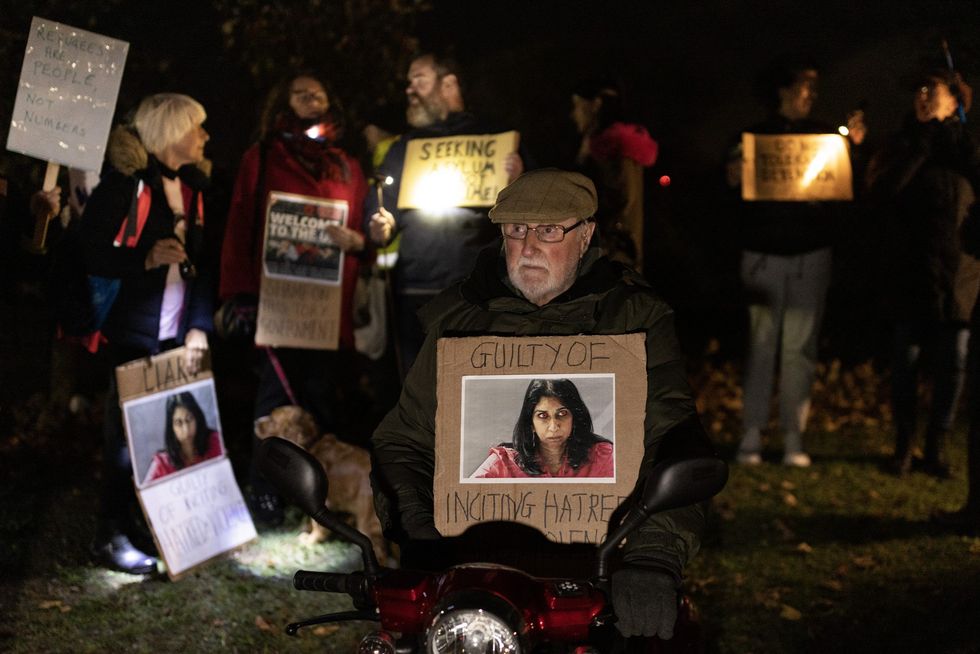
It is not just business which benefits from non-born UK labour.
The National Health Service [NHS] is reliant on ethnic minorities.
“I believe you should have a points-based system, because often people who come to this country bringing skills, bringing talents, and working very hard, they contribute to the economy,” said Ashworth.
“But that always has to be balanced by a fair system.
“When you look at the labour market today, we've got over a million vacancies, and we know that services like social care, the national health service, have always relied on international staff.
“Having said that, you want to invest in training of people in the UK, which is what Labour have called for.
“We're going to train more nurses and doctors, and of course, you don't want to be taking medics away from parts of the world who desperately need health provision.”
Britain should not ignore the contribution of migrants, said business expert, Dr Ajit Nayak.
“People who are coming in are putting their roots down here making a significant contribution by running businesses employing people paying taxes and so on.
“So, it's really needed if Britain wants to be a forward-facing trading country.
“Past research has shown that migrant businesses are more innovative in terms of processes, so they make things work better.
“They're more export oriented, and they do act as a living bridge to other parts of the world, and they play an important role in Britain on a global trading stage.”
And Britain can learn from the entrepreneurial spirit of the migrant.
“Migrants are a lot more determined, and they work a lot harder in terms of making a life than themselves,” continued Nayak.
“Some of these people have been through an incredibly difficult displacement from their countries of origin, facing a very tough life for that situation.
“So, they're absolutely more determined to make the opportunities that they get.
“There are barriers still in terms of access to finance and access to networks and to get on to the ladder.
“But I see things have improved a lot for migrants, and they've been able to showcase their talent and make a contribution in the UK, which is a great positive story.”
Analysis
Increase in people born outside UK but not enough to cause alarm
When households in the UK filled in their census forms last year, they updated the information the government uses to target resources, writes Barnie Choudhury.
Every decade we have seen more people born outside the UK settle in Britain.
This census is no different.
The census figures reveal that people in England and Wales born outside the UK increased by 2.5 million since 2011.
That means 10 million of us were “foreign-born”, out of a population of almost 60 million in England and Wales.
India tops that list with 920,000 people or 1.5 per cent of those born in these two nations, an increase of 33 per cent across the decade.
Those born in Pakistan and Bangladesh were 624,000 and 273,000 respectively.
No alarm
Since the time of Enoch Powell, and his “rivers of blood” speech in 1968, generation after generation of politicians warned of Britain being taken over by foreigners.
What this census reveals is that non-born people are indeed increasing, but not at a rate which should cause real alarm.
The percentages born in the Indian subcontinent in relation to the overall population in England and Wales are tiny.
These will include people who settled here in the 1960s, many of whom will now be British citizens.
They account for just three per cent, which is hardly “an invasion”.
The ONS said, “Those born in the European Union (EU) made up 3.6 million (36.4 per cent of all non-UK born usual residents) of the population, an increase from 2.5 million (32.7 per cent) in 2011 (including Croatia, who joined the EU in 2013).
“The remaining 6.4 million (63.6 per cent) were born outside the EU, up from 5.1 million (67.3 per cent) in 2011.”
“This continues a longer-term trend of an increasing proportion of non-UK born residents being from within the EU.
“In 2001, 1.4 million (30.0 per cent of non-UK born residents) were born in the current EU member states and 3.2 million (70.0 per cent) were born outside the EU.”
But even then, we must put this into perspective – only one in six was born outside the UK, and many may well have been here for several decades.
The census asked those who were not born in Britain “when they have most recently arrived to live in the UK”.
Established settlers
By combining this with their date of birth, ONS statisticians concluded that of the 10 million born outside the UK and now living in England and Wales in 2021:
- 2 million (42.4 per cent) had arrived since 2011
- 7 million (26.9 per cent) had arrived between 2001 and 2010
- 1 million (30.7 per cent) had arrived before 2001
So, almost 31 per cent, have been here for at least 20 years or one generation.
Without further data, we do not know whether that figure could be higher.
Unfortunately, the ONS did not reveal how many of the 2.7 million came here to settle and make Britain their home in 2001.
When it comes to the EU, Romania tops the list in terms of percentage increase.
“Those who listed Romania as their country of birth increased to 539,000 in 2021, from 80,000 in 2011,” wrote the ONS, “an increase between censuses of 459,000 (576 per cent), making Romania the fourth most common non-UK country of birth.
“This increase was the highest out of any country and is driven by working restrictions for Romanian citizens being lifted in 2014.
“Italy also entered the top 10 non-UK countries of birth, rising to 277,000 from 135,000 between 2011 and 2021, a 106 per cent increase.”
The numbers holding a UK passport increased decade-on-decade, from 42.5 million (75.7 per cent) in 2011 to 45.7 million (76.7 per cent) in 2021.
But the ONS continued, “Those who held a non-UK passport also increased, from 4.2 million (7.4 per cent) in 2011 to 5.9 million (9.9 per cent) in 2021.
“Of those who had a non-UK passport, 3.9 million were EU passports.
“This is an increase of 72.5 per cent from 2011, when 2.3 million people had passports from the same EU countries (including Croatia).
“The other 2.0 million non-UK passports in 2021 were from outside the EU (up five per cent from 1.9 million in 2011).”
In context, that is an increase of 100,000 in a decade or 10,000 every year.
India and Pakistan passport holders are third and ninth respectively with a 17 and 11 per cent rise decade-on-decade.
